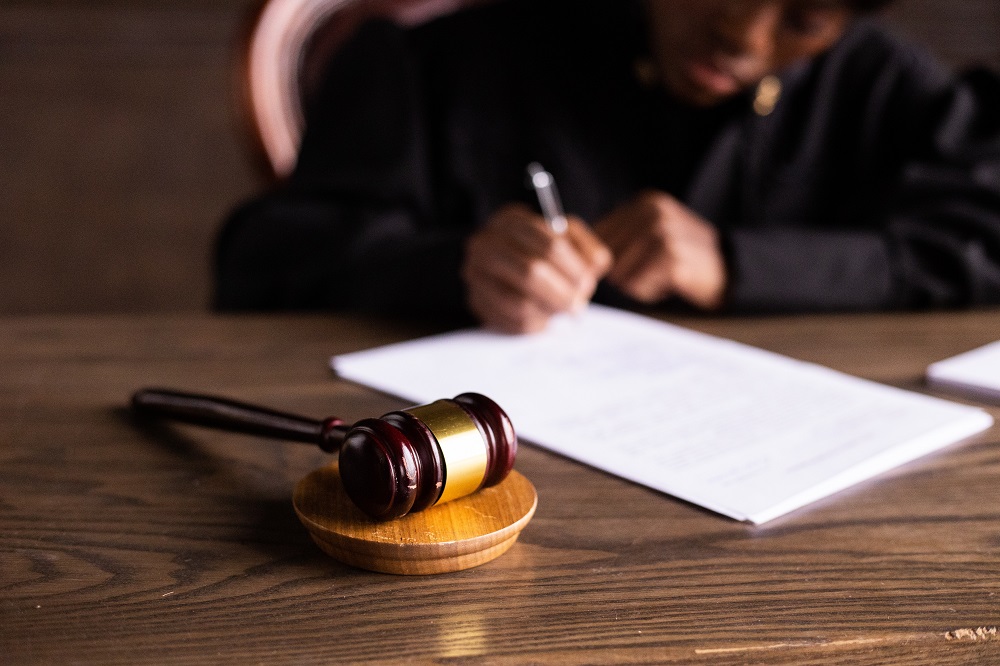Say you’re injured in a slip and fall accident at a local retail store. You’re perusing the store’s goods when you slip in an unnoticed puddle of water caused by a dripping leak in the ceiling. Down you fall, landing hard on your knee, and instant severe pain tells you it’s a serious injury. The store owner comes to your aid, calling you an ambulance and making sure you’re taken care of. Only after your accident do they mop up the puddle and finally decide to address the leak.

At the hospital, doctors tell you you’ve broken your knee in multiple places and will need surgery and rehabilitation. You’ll have to take time off work because you can’t be on your feet. You don’t know how you’ll pay for your mounting medical bills, let alone make up the lost wages from your forced time off. If you speak to a team of premises liability experts like The Whisler Law Firm, your situation will likely point us toward recommending you seek damages from the store that caused your accident.
This is when one of the first major decisions of your case comes into play: Will you choose a settlement or litigation?
Defining Settlement and Litigation
A settlement is the resolution of a lawsuit or legal dispute without pushing forward to final court judgement by way of a trial. It’s often reached through a monetary offer made by the defendant (the store’s insurance company in this scenario) to the plaintiff (you, as the slip and fall victim). Settlements often include negotiation between attorneys representing each side of the lawsuit until a fair and just conclusion is reached. But “fair and just” is relative — sometimes, insurance companies are unwilling to take responsibility or award reasonable compensation to plaintiffs. That’s when litigation may become necessary.
When an appropriate settlement can’t be reached, a case may move to litigation, or when a lawsuit or other legal dispute is taken to a court to determine its outcome. With litigation, the final result of your lawsuit is dependent upon the deductions made by a judge and jury who have heard and seen evidence presented to them. Compensation is no longer dependent upon negotiation between the defendant’s and plaintiff’s legal counsel.
Though the media has popularized the idea of harrowing courtroom scenes with cases passionately argued by lawyers, the reality is that far more legal disputes are resolved in the settlement phase, without a courtroom, judge, or jury present. This is first and foremost because in the state of Florida, an attempt at resolving legal disputes through settlement is required before making the decision to move on to litigation. But it is also largely because the settlement process is much less time consuming, costly, and emotional than litigation. And these are all valuable factors to consider when you, as the victim, are also trying to focus on making a healthy recovery from your injuries.
The Pros and Cons of Settlement and Litigation
Even though a larger percentage of lawsuits are solved in the settlement phase rather than the litigation phase, there are pros and cons to both tactics.
In the case of our hypothetical slip and fall accident, during settlement proceedings your legal team may make the argument that the store owners have a legal duty of care for each and every patron that steps foot into their store. By failing to correct a hazard in the environment they are responsible for (the leak and subsequent puddle on the floor), they breached that duty of care and should be found negligent — thus making them responsible for paying damages you suffered as a result of the accident.
But settlement is only useful if it can be considered fair. Your goal as the plaintiff is to obtain full recovery for all damages to you in the form of a monetary reward. This can and should include coverage for medical bills, lost wages, and other pain and suffering. If the defendant offers damages that are adequate in response to your losses, the process can be considered fair and resolved in settlement. This is often preferable for all involved, because while the settlement process isn’t necessarily short, it is certainly shorter, less taxing, and less costly than the litigation process.
If the defendant refuses to take responsibility for the accident and provide a fair settlement, your case has grounds to go to litigation, where it has the potential to gain the fair damages you’re entitled to. But remember: The outcome of your case in litigation will now be givent to a judge or jury to decide. The negotiation phase is over, and now your case is left to the unpredictability of the court. There are never any guarantees one way or another in litigation, but there is always the prospect of your awarded damages being much more substantial than any private settlement you could have hoped to reach with the defendant. This is one of the major potential benefits of litigation.
Is Settlement or Litigation Right for You?
In the case of personal injury lawsuits of all kinds, The Whisler Law Firm always attempts to reach a fair settlement first. This is because we know our clients are already going through the hardship of suffering an accident and attempting to recover. The settlement process isn’t easy, but it is less burdensome than the litigation process.
However, if we feel the defendant is being unfair and unjust in their response to your case, our team is unafraid to move forward with litigation. We have years of experience helping our clients reach fair settlement deals, but we have just as much experience arguing on their behalf inside a court room. Our goal is to get you the compensation you deserve by any means necessary. That’s why we work on a contingency basis, meaning you pay us nothing for our legal services unless your case is settled or judged in your favor.
Every personal injury case and the way it progresses is unique. While settlement may often be preferable, it is not always the most just course of action. Litigation may be more time consuming, but if it means winning you the compensation you so rightly deserve, it’s the right path to take. Ultimately, the decision of settlement or litigation should be decided together with your legal team after your case has been thoroughly reviewed. Give us a call at 833-529-5677, or request an entirely free consultation so we can hear your story, review your situation, and point you in the right direction.



